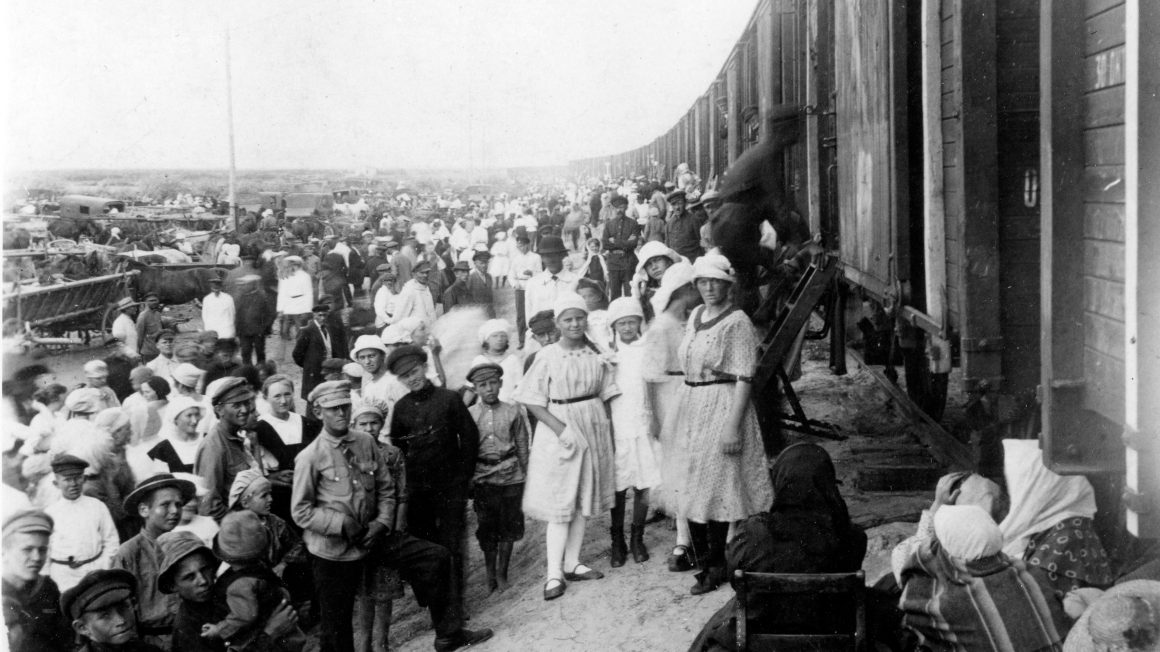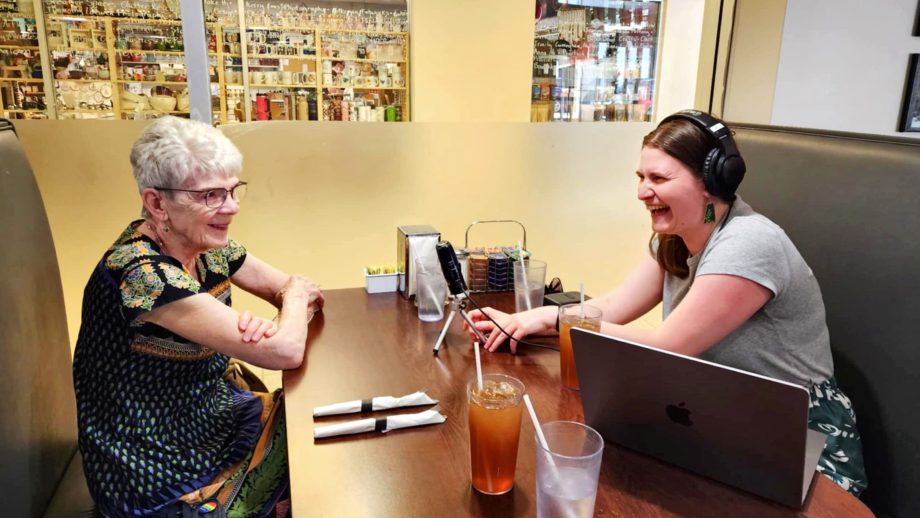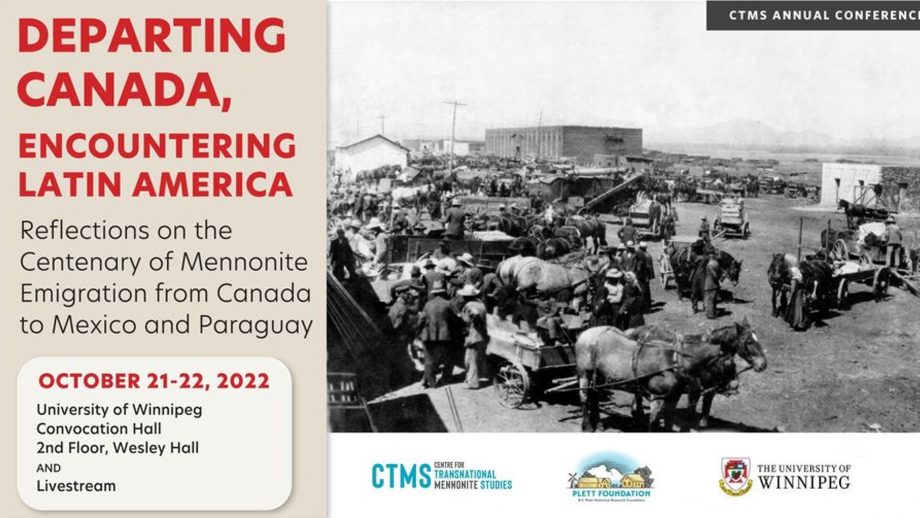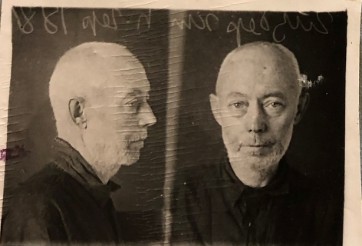Scholars from across Canada and around the world will gather at The University of Winnipeg this weekend for an academic conference examining a pivotal era in Mennonite history that began 100 years ago.
The Russlaender Mennonites: War, Dislocation, and New Beginnings takes place July 14-15 in Convocation Hall. Attendance is free and it’s open to the public.
It’s important to pass along this history to younger generations.
Dr. Aileen Friesen
The conference, which coincides with the 100th anniversary of the start of the Russlaender migration (1923-1930), will feature six panel presentations by international scholars, including faculty members from UWinnipeg’s own Mennonite Studies program.
“It’s an international slate,” said Dr. Aileen Friesen, Assistant Professor in the Department of History and Co-Director of the Centre for Transnational Mennonite Studies, which is hosting the conference. “We have scholars from Canada, Ukraine, the Netherlands, New Zealand, and Israel presenting.”
In addition, award-winning novelists Sarah Klassen, Sandra Birdsell, and David Bergen, all of whom have written fictional accounts of the Russlaender migration, will address conference attendees. A documentary will also be screened.
The second of three major Mennonite migrations to Canada, the Russlaender period saw 21,000 Mennonites flee civil war, famine, and political upheaval in the Soviet Union. More than 6,000 settled in Manitoba.
“It’s through help from Mennonites that were already in Canada that the Russlaender Mennonites were able to come to Canada,” Dr. Friesen said. “When they arrived, many were billeted with families from the 1870s migration.”
A unique agreement with the Canadian Pacific Railway allowed penniless Russlaenders to travel to Canada on credit, in order to farm more land along the rail line. In the years that followed, Russlaenders made many significant contributions to Canadian society.
“All Mennonite migratory groups have made their mark,” Dr. Friesen said, “but the Russlaenders were very focused on education, and they made significant contributions to that even here at The University of Winnipeg, where the Chair in Mennonite Studies was started by a Russlaender Mennonite family, Dr. David and Katherine Friesen.”
Train journey retraces history
More than 120 Russlaender descendants are also taking an immersive cross-Canada train trip to retrace their ancestors’ settlement journey.
The three-part Russlaender 100 Tour, which runs July 6-25, is taking participants from Quebec City to Abbotsford, with stops in Montreal, Kitchener, Winnipeg, Saskatoon, Rosthern, and Edmonton.
Along the way, participants will enjoy historical lectures, presentations, music, and day trips to Mennonite-related sites. Each stop will help them better understand the history of this migration and the immigrant experience more generally.

Dr. Aileen Friesen, Assistant Professor in the Department of History and Co-Director of the Centre for Transnational Mennonite Studies.
In Manitoba, the rail tour travellers will attend a free Saengerfest (singing festival) at Centennial Concert Hall on July 15. Donations will be collected for Mennonite Central Committee’s Russlaender Remembrance Fund.
Dr. Friesen says the train tour is intended to celebrate the Russlaenders’ faith, memorialize the challenges they faced as new settlers in Canada, and acknowledge their impact on Indigenous peoples.
“Canada saved these Mennonite families from the horrors of Stalinism, but also made them part of the settler colonial system. This element of the story may make Mennonites uncomfortable, but it can’t be ignored,” Dr. Friesen said.
Sponsorships are enabling five UWinnipeg students to take part in the sold-out train trip.
“For many, this is part of their heritage that they may not be aware of, so it’s important to pass along this history to younger generations,” Dr. Friesen said.





